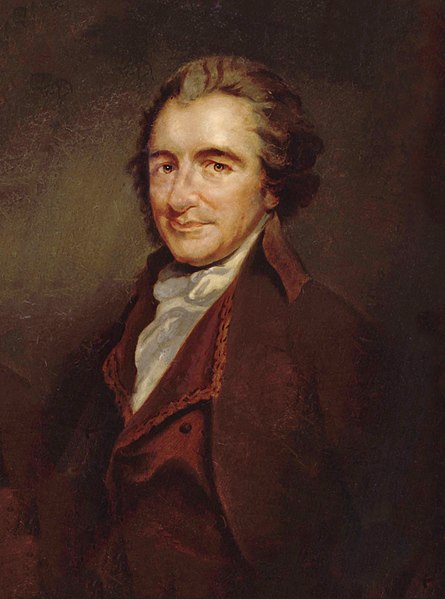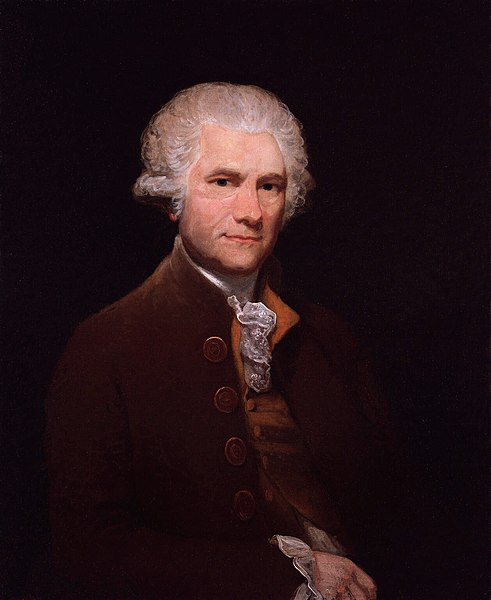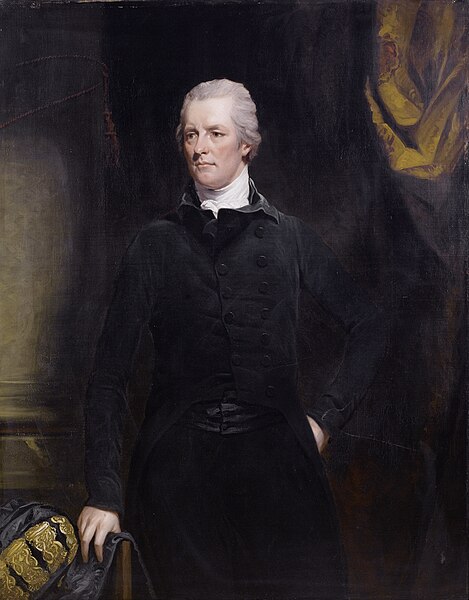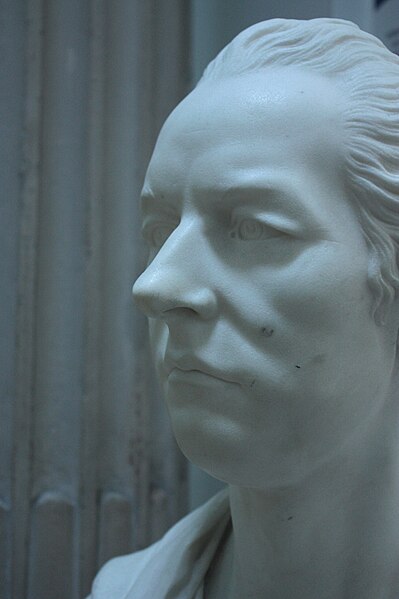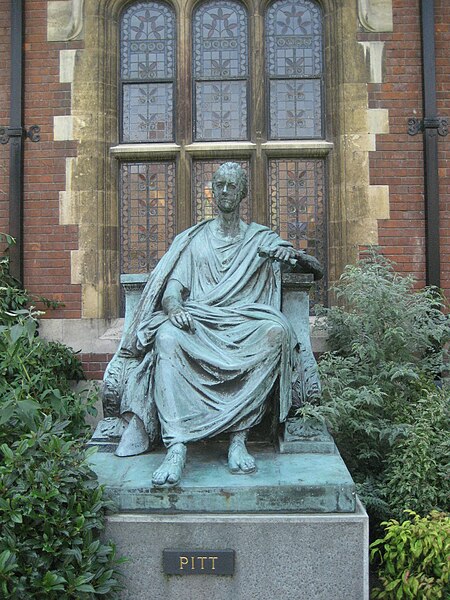The 1794 Treason Trials, arranged by the administration of William Pitt, were intended to cripple the British radical movement of the 1790s. Over thirty radicals were arrested; three were tried for high treason: Thomas Hardy, John Horne Tooke and John Thelwall. In a repudiation of the government's policies, they were acquitted by three separate juries in November 1794 to public rejoicing. The treason trials were an extension of the sedition trials of 1792 and 1793 against parliamentary reformers in both England and Scotland.
Thomas Paine; a painting by Auguste Millière (1880), after an engraving by William Sharp after a portrait by George Romney (1792)
John Horne Tooke
James Gillray's cartoon of Thelwall speaking at Copenhagen Fields on 26 October 1795
William Pitt was a British statesman, the youngest and last prime minister of Great Britain from 1783 until the Acts of Union 1800, and then first prime minister of the United Kingdom from January 1801. He left office in March 1801, but served as prime minister again from 1804 until his death in 1806. He was also Chancellor of the Exchequer for all of his time as prime minister. He is known as "Pitt the Younger" to distinguish him from his father, William Pitt, 1st Earl of Chatham, who had previously served as prime minister and is referred to as "William Pitt the Elder".
Portrait by John Hoppner, c. 1804–05
William Pitt by Joseph Nollekens, 1808
Statue of Pitt at Pembroke College, Cambridge, his alma mater
The huge monument to William Pitt the Younger by J. G. Bubb in the Guildhall, London, faces an equally huge monument to his father, William Pitt the Elder, in a balanced composition

